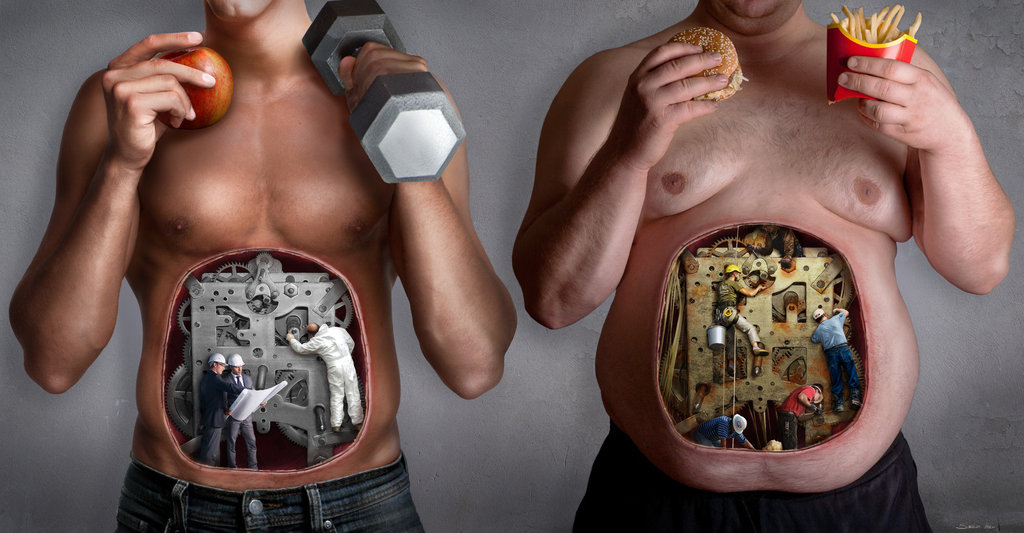Nutrition triggers different hormones
Proper exercise with proper nutrition and sufficed with adequate sleep, will contribute to a healthy and efficient loss of fat by burning the extra fat. To make this possible you need to reduce as much carbs as you can from your diet, but don’t reduce the intake of fat significantly. Yes, we know this is contrary to popular opinion too. We are not here to be “popular” but to be effective. This way you can achieve maximal results, greatly faster than the “popular” rate which is many months or years.
Proper diet includes daily intake of green salads, drinking 2 liters of water at least (this is not juices, soft drinks, coffee, but pure simple water), intake of protein around 1-2 grams per kg body weight, fats around 1-2 grams per kg, and carbs 40 grams a day at most. Yes, this is hardcore. But body fat is hardcore too.
The proper amounts to eat vary according to your current state, body structure, your goals and other relevant factors.

Salads
Green salads and other vegetables are necessary as they contain dietary fiber, besides vitamins and minerals. Dietary fiber is the most complex carbohydrate and it is not broken down in the body, it’s eliminated out. Dietary fiber is exceptionally useful in the digestion of food and it cleans the intestines. It also reduces insulin response which means it slows down the accumulation of fat.
Low-fat dairy products
Don’t buy skimmed milk or any low-fat dairy products if you wish to lose body fat. These products have less fats but more carbohydrates. And the mechanism by which the accumulation of fat takes place is mainly triggered by the presence of CARBOHYDRATES. Carbs trigger insulin spikes. Insulin then performs CONVERSION OF THE EXCESS CARBOHYDRATES INTO FAT AND STORES IT AS BODY FAT. It also stores the excess of ingested dietary fat.
Insulin will store whatever you provide – fats and/or carbohydrates. Yet carbohydrates trigger insulin, dietary fats do not. In the absence of carbohydrates which means minimal insulin presence, there is no one to store the fats. Fats aren’t dangerous, but carbs are if you consume them excessively or if they comprise a significant part of your diet.
Dietary fat should come from healthy sources such as meat, olive oil, butter (not margarine).






